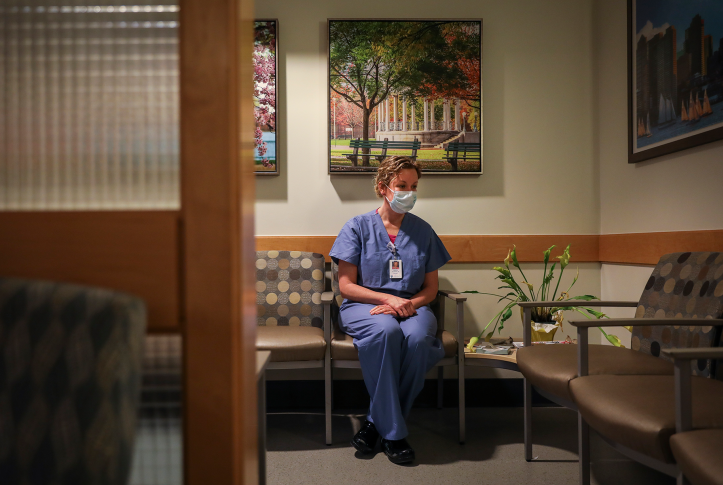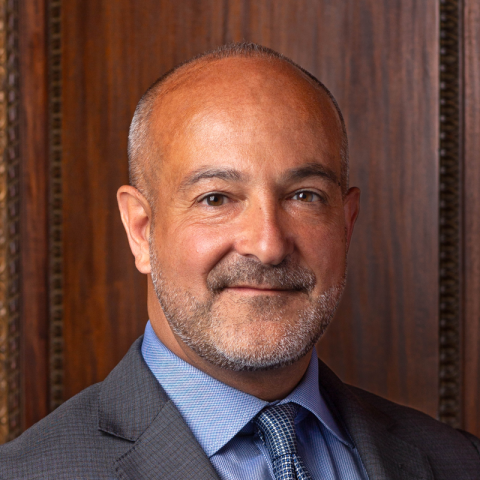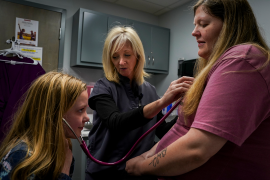That night I couldn’t sleep. We needed to do something. Our community was being decimated by COVID, and when patients with limited-English proficiency (LEP) were admitted, not only did they have to fight COVID, they had to fight to communicate, to understand their caregivers, and to be understood. This was just too much to take amidst all the suffering. Action was needed.
At the time of the COVID-19 pandemic, Commonwealth Fund President Joseph R. Betancourt, M.D., was the vice president and chief equity and inclusion officer at Massachusetts General Hospital (MGH). In the following excerpt from a new book, Voices from the Front Lines: The Pandemic and the Humanities, he recounts the quick pivot he and his colleagues made to assure the minority, Spanish-speaking populations in the Boston community that were disproportionately fighting for their lives, would be understood.
March 30, 2020
Over the last two weeks, the COVID inpatient numbers had slowly begun to climb. We had put various workstreams in place and had built equity into everything we were doing. The week prior, I began to receive texts and emails from my colleagues in the MGH Emergency Department sharing that it seemed almost every other patient who had COVID, or had been intubated, was Spanish-speaking. Ditto for the surge floors and the Intensive Care Unit. Since we collect race/ethnicity and language data on all our patients and prepare an Annual Report on Equity in Healthcare Quality as a tool to measure our performance, we quickly moved to quantify these observations. As we soon discovered, these alarming observations from those on the ground proved to be true. A large and disproportionate number of our COVID inpatients were Latinx and Spanish-speaking, from our surrounding communities like Chelsea, Revere, and East Boston. The same day the official data came in, I decided to do walk rounds on the surge floors to see how we were managing those patients with limited-English proficiency (LEP). MGH has a strong and proud Interpreter Services Department that just a year prior had delivered over 140,000 interpreter visits via live, video, and telephonic interpretation. With COVID however, and the desire to preserve personal protective equipment and keep “non-essential” workers out of the hospital, it became clear that we weren’t managing those with LEP well. On the floors I heard people were trying to do their best — using their iPhone apps to interpret and using family members, and even, in some cases using children via FaceTime. This last method was against our ethos and unacceptable in normal times, but the care teams were just trying to do anything they could to manage the crisis in front of them.
* * * * *
April 4, 2020
I woke up this Saturday morning racking my brain on how we could do a better job caring for our Spanish-speaking COVID patients. By this point, they comprised 40% of our COVID inpatients. I was in the shower thinking, ruminating, and thought that at a minimum I could start rounding with the surge teams so I could help bridge the language gap. As I played with this idea in my head it slowly started to hit me. Since we had put together a multilingual registry, what if we culled the list for native Spanish-speaking physicians to assess their willingness to help? I figured many were sidelined due to COVID since we had shut down many services such as surgery, pediatrics, etc., and they were either being redeployed or had been redeployed already. Why not take advantage of their bilingual capacity as an asset, and redeploy them to assist with Spanish-speaking patients? Somehow we could organize ourselves to provide care across the hospital. It was time to explore quickly what was possible, but undoubtedly this was the day the idea of a “Spanish Language Care Group” — or SLCG — was born.
* * * * *
April 10, 2020
We spent the entire week working on building and operationalizing the SLCG. We started by putting out a call to the native Spanish-speaking doctors from the Multilingual Registry that we had developed, asking if they would be willing to help us care for Spanish-speaking COVID inpatients. An incredible 51 native Spanish-speaking doctors, from 15 clinical disciplines, and representing 15 Latin-American countries, answered the call.
We constructed a work plan that included the need for seven doctors during the day from 7 A.M. to 7 P.M., four doctors at night from 7 P.M. to 7 A.M., and a doctor in the Emergency Department — amounting to 24/7 coverage — all working shoulder-to-shoulder with the surge teams, covering all floors. On this night we held an introductory Zoom for the group, to explain the process, answer questions, and come together as the SLCG.
To say it was inspiring was an understatement. I have never been prouder in my career to stand with my Spanish-speaking peers, willing to put themselves at risk, with all the unknowns of COVID at the time, to assure that at every bedside of a Spanish-speaking COVID patient there would be a Spanish-speaking doctor with the surge team providing clinical, cultural, and linguistic competence for the encounter. Within just six days, we had built the first iteration of the SLCG, and the sign-up Google Doc was almost full, with two to three weeks coverage in just a couple of days. All SLCG members were ready, fearless, excited for the challenge, and the full launch was just days away. Never a prouder day in my life.
* * * * *
April 24, 2020
Our colleagues were literally blown away to see how clinicians who brought clinical, cultural, and linguistic competence to the daily encounters fundamentally improved communication, quality of care, and efficiency and effectiveness of clinical care. Day by day we had earned their trust, respect, and praise. Most importantly, when we walked into a Spanish-speaking patient’s room, and through all the masks and PPE they simply heard “Buenos Dias, como se siente hoy?” (Good morning, how are you feeling today?), the look of relief, the sense they would be understood, the feeling that they would understand and be able to communicate, brought invaluable and immeasurable joy to them, and this joy was clear to see. The SLCG had succeeded in its mission to improve quality of team-based care, and provide the most compassionate, caring, and culturally competent patient experience possible.




